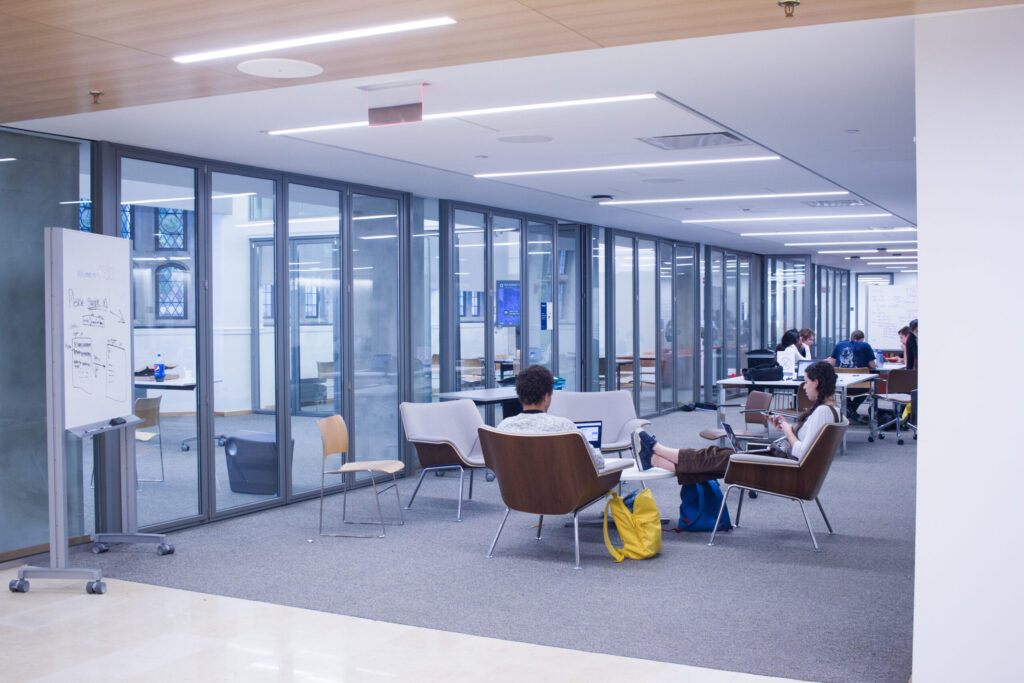Applications for the pilot AI Course Revision Pilot Grant are open for instructors who want to integrate artificial intelligence into their curriculum.
Olivia Woo
Staff Reporter


Surbhi Bharadwaj
The Poorvu Center for Teaching and Learning is accepting applications for its AI Course Revision Pilot Grant.
Instructional faculty members are eligible to receive funding to support the integration of artificial intelligence into their curriculum. Grants are given in three separate tiers: up to $500 for Tier One, up to $2,000 for Tier Two and two-year grants of up to $20,000 for Tier Three.
“Our goal is to support Yale instructors as they reflect on the central learning goals of their course and rethink their pedagogical approaches in the context of AI,” wrote Jennifer Frederick, the executive director of the Poorvu Center. “For some instructors, this means designing opportunities for students to experiment with AI tools and evaluate the outcomes. For other instructors, this means a refreshed articulation of the essential human skills that will be gained in their course.”
The program was motivated by the June 2024 Report of the Yale Task Force on Artificial Intelligence, which encouraged educators to prepare students for entrance into a world where the use of artificial intelligence is prevalent, fostering ethical approaches to the technology.
The Poorvu Center website offers examples of AI integration into curriculum that faculty members have utilized across disciplines, ranging from allowing students to submit a final paper that was originally AI-generated and then edited by the student to prompting students to identify errors in ChatGPT’s responses to research questions. According to Frederick, approved grants may be similarly showcased by the Center.
“Faculty appreciate opportunities to learn from one another, and programs like these can catalyze creativity in our classrooms,” Frederick wrote.
The grant website also encourages faculty to consider the Yale Library’s Generative AI Literacy Framework in their grant proposals. The framework offers suggestions for learning outcomes and assignments to utilize generative AI effectively in the classroom, and is meant to spur conversation and thinking, not be directive, said Lauren Di Monte, associate university librarian for research and learning.
The Yale Library has also developed resources to improve equity of access to AI, such as a platform named Clarity. The platform runs on ChatGPT 4.0 and is free for Yale students, faculty and staff. It offers broader privacy protections for sensitive data than traditional generative AI models.
“All faculty are invited to apply for the AI Course Revision Grant and no particular disciplines have been targeted,” wrote Elizabeth DeRosa, communications director at the Poorvu Center. “Given the nature of this new technology, we are excited about the opportunity for great creativity in the development of the proposed projects.”
Proposals will be evaluated and selected by a committee consisting of Poorvu Center staff and other Yale community members, according to DeRosa. The committee members will be chosen by the Faculty Advisory Board, which will also be in charge of approving the committee’s recommended awards.
Tier Two and Three grant recipients must attend Poorvu grant cohort group sessions, and Tier Three grant recipients must also consult with Poorvu center staff separately.
According to Frederick, the grant is launched as a pilot program, and its effectiveness will be evaluated to determine its status in future years.
“While AI is a tool that is rapidly evolving, the fundamentals of teaching have not changed. AI is not a replacement for learning,” wrote Julie McGurk, director for teaching development and initiatives at the Poorvu Center. “This grant will encourage faculty to identify the skills that are important for students to become informed users or non-users of AI and the ways AI may be used as a teaching and learning tool to complement their instruction.”
Applications for the grant revision program are due on March 7, and applicants will be notified by April 28.


